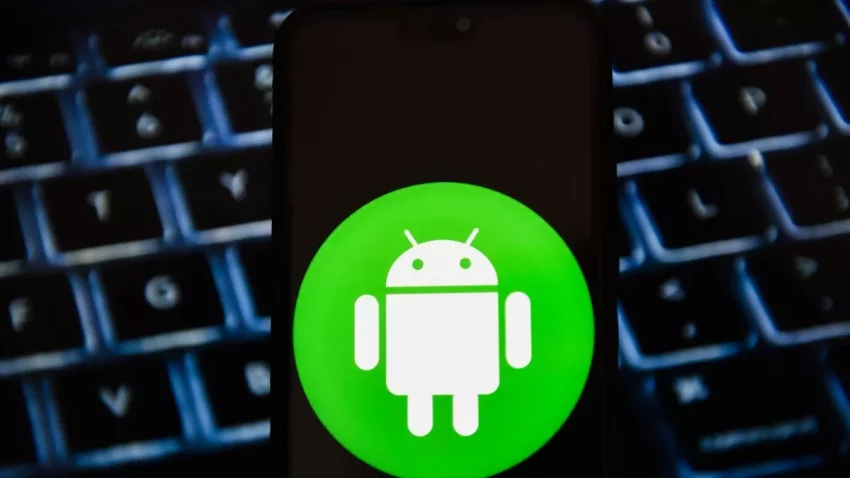It is important to make sure that any apps you download are safe for you and your device. Malware and bloatware have become a growing problem on Android. Google regularly removes adware, spyware, and other unwanted apps from its Play Store. But what about the most popular apps, which are not malware, but still pose a serious privacy risk? We’ve compiled a list of the top 8 Android apps you should avoid if you care about your privacy.
Android apps you should avoid
Google Play can be a great way to discover new apps. However, you should always be careful when downloading apps due to the potential security implications. If you are not careful, even older apps that have been around for a while can be a privacy nightmare. Some apps will collect data from your device and sell it to third parties for money. We’ve compiled a list with the 8 most dangerous Android applications you should remove from your phone immediately.
1. UC Browser
UC Browser is one of Android’s most popular web browsers. It was developed by UC Web, a Chinese tech giant. Cybersecurity analysts claim that the browser does not protect data transmissions adequately, putting your data at risk to be intercepted and misused by hackers or intelligence agencies. Researchers claim that the browser transmits keystrokes using weak encryption, or sometimes without any encryption. It is a very dangerous and unsecured application that you should delete from your phone as soon as possible.
Alternatives: Mozilla Firefox (Free), Google Chrome (Free), DuckDuckGo Browser (Free). Firefox Focus is a free privacy-focused open-source browser which uses the ‘Private or incognito’ mode by default. Tor Browser is also available for free if you are an advanced user.
2. CLEANIT
CLEANit is a garbage file cleaner with millions of downloads in the Play Store. This app is not only incredibly permission-hungry, but it also promotes frivolous services on modern Android devices. Some of these apps can be harmful to your phone.
Clearing the cache, for example, will only cause your phone to slow down when it has to be rebuilt. Killing background apps, however, does not have any impact on battery life. If these apps are scanning for files or playing music in the background then you shouldn’t kill them.
Alternatives: Greenify, CCIeaner.
Note: If your Android phone is relatively new, you can skip the ‘optimizers’ and cleaners’. These apps do not improve the speed of your phone and can cause problems by altering core settings. If you do use these apps, stick with the two listed above.
3. Dolphin Browser
Dolphin browser is another popular third-party app that promises much but delivers little. This flash-supported browser is a tracking nightmare that should be removed immediately. Dolphin not only saves your incognito browsing sessions but it also shows your IP address, even when using a VPN. Dolphin comes with an array of ‘features,’ such as video players and speed boosts.
Alternatives: Mozilla Firefox (see [1] for download links), Google Chrome, DuckDuckGo Browser
4. Antivirus free Virus Cleaner for Phones
Super Cleaner Studio’s Virus Cleaner, Antivirus Free and phone Cleaner has over 14,000,000 installs. This app is the epitome of what’s wrong in the Android ecosystem. The app is flooded with ads for questionable brands and services. It also claims to be a “super speed booster, battery-saver, CPU cooler, and notification cleaner”. None of these promises can be met by any software. Personal, I would avoid any app that claims to be a “CPU cooler”.
Alternatives: Avast, AVG and Kaspersky are all free.
Google Play Protect is the best antivirus tool for Android and is installed by default on every Android phone.
5. SuperVPN Free VPN client
SuperVPN, with over 100,000,000 installs, is one of Android’s most popular VPN apps. However, earlier this year, cybersecurity analysts claimed that the app contains critical vulnerabilities which could allow hackers carry out MitM attacks (Man-in-the-Middle), potentially stealing private information, including credit card numbers, photos, and private chats. Reports claim that criminals could also use the vulnerabilities to hijack users’ connections to malicious websites, which could endanger their privacy and security.
Alternatives: Express VPN, Nord VPN and SurfShark are all free. Check out our list of Android’s best VPN apps.
6. RT News
Russia Today is funded by the Kremlin and is the official voice of the Russian Government. The network provides news channels, blogs, and mobile apps that are in English. It is aimed at western audiences. Despite its claims to be a high-quality journalistic venture, the network is often used by the Vladimir Putin regime as a propaganda outlet. It has also been cited as a source of disinformation about US politics and Brexit by western security agencies like the CIA. Avoid this app if you want to avoid being bombarded by fake news.
Alternatives: CNN, BBC (free)
7. Super Clean – Master Cleaner
Super Clean by Magical Dev is another popular ‘cleaner app’ that we had to include on this list. The Super Clean app by Magical Developer has been downloaded more than 26,000,000 times on the Play Store. However, like many other cleaner apps it doesn’t do much to speed up your phone. It promises the same things as other apps of its kind: optimize battery use, clean junk files, and boost memory. None of these require a third-party application. Most Android phone vendors include a cleaner/security app, which is usually enough to do the trick.
Note: As we mentioned above, “cleaner” or “speed booster” apps can do more harm than good to your phone. If you want to boost the speed of your phone, remove apps that aren’t being used and move multimedia files onto a Class 10/U3/V90 fast microSD card, if your device supports it. Transfer them to your computer or USB drive if you want to free up space on your device.
8. Fildo Music
Fildo is the penultimate application on our list. It was originally an illegal music download app, disguised as a music player. After being under scrutiny, the app discontinued its music-downloading functionality and refocused as a music-management app.
We are skeptical of apps that promise one thing and deliver another. The app is also said to have ties with a controversial Chinese entertainment firm, Netease. This should raise another red flag among users. You should use a different music app.
Alternatives to VLC: AIMP (Free), Poweramp, Poweramp.
Bonus: S.M.T.H. Send Me To Heaven (Send me to Heaven)
S.M.T.H. is the last but certainly not least. This is a fun little app that can damage your phone in unexpected ways. The app measures how high you can toss your phone using the built-in sensors of a smartphone. You need to throw the phone very high for the game even to work.
When it was released nearly a decade back, the app received a lot attention. The game is fun but it has caused many devices to die. Install it at your own peril, but don’t say that we didn’t warn you.
Other dangerous apps you should not install
We only selected apps available in the Play Store. There are still hundreds of apps that were banned from the Play Store due to click fraud, illegal data-mining, disruptive ads, and other reasons. Clean Master, DU Batteries Saver, ES File Explorer and Quick Pic Gallery are among the software that have been banned from the Play Store. Many of these apps come from notorious Chinese developer Cheetah mobile.
There are still many of these available to download from third-party Android apps stores and various websites. If you are unsure of the developer or history of an app, it is best not to download it.
How to tell if an app is useful or harmful?
Sometimes it’s difficult to distinguish between good and malicious apps. The number of permissions that an app requests is a tell-tale sign. Does a flashlight application need location permissions? Does a cleaning application require microphone and/or camera access?
Does a photo editing app ask for permission to send SMS or phone calls? It’s best to avoid such software if they do. Although asking for more permissions doesn’t necessarily mean that an app is dangerous, it is important to do some research before you install them.
It’s a good idea to avoid cleaners, antiviruses, RAM boosters, etc. because they rarely offer real-world performance improvement in most cases. Weather apps and scanners can also collect sensitive data and personal information from your phone.
Yes, many photo filters/editors and emoji applications are little more than glorified adsware. It’s best to stay away from apps that request a lot of permissions that have nothing to do with their advertised functionality.
Avoid these apps to keep your Android safe
Google has made a concerted effort to keep the Play Store free of dangerous apps, but you will still find malware, adware and spyware. The aforementioned apps are the most popular and dangerous ones on Android. This is why we have included them in our list. If you have one of the most dangerous Android applications on your phone uninstall it and install an alternative.




